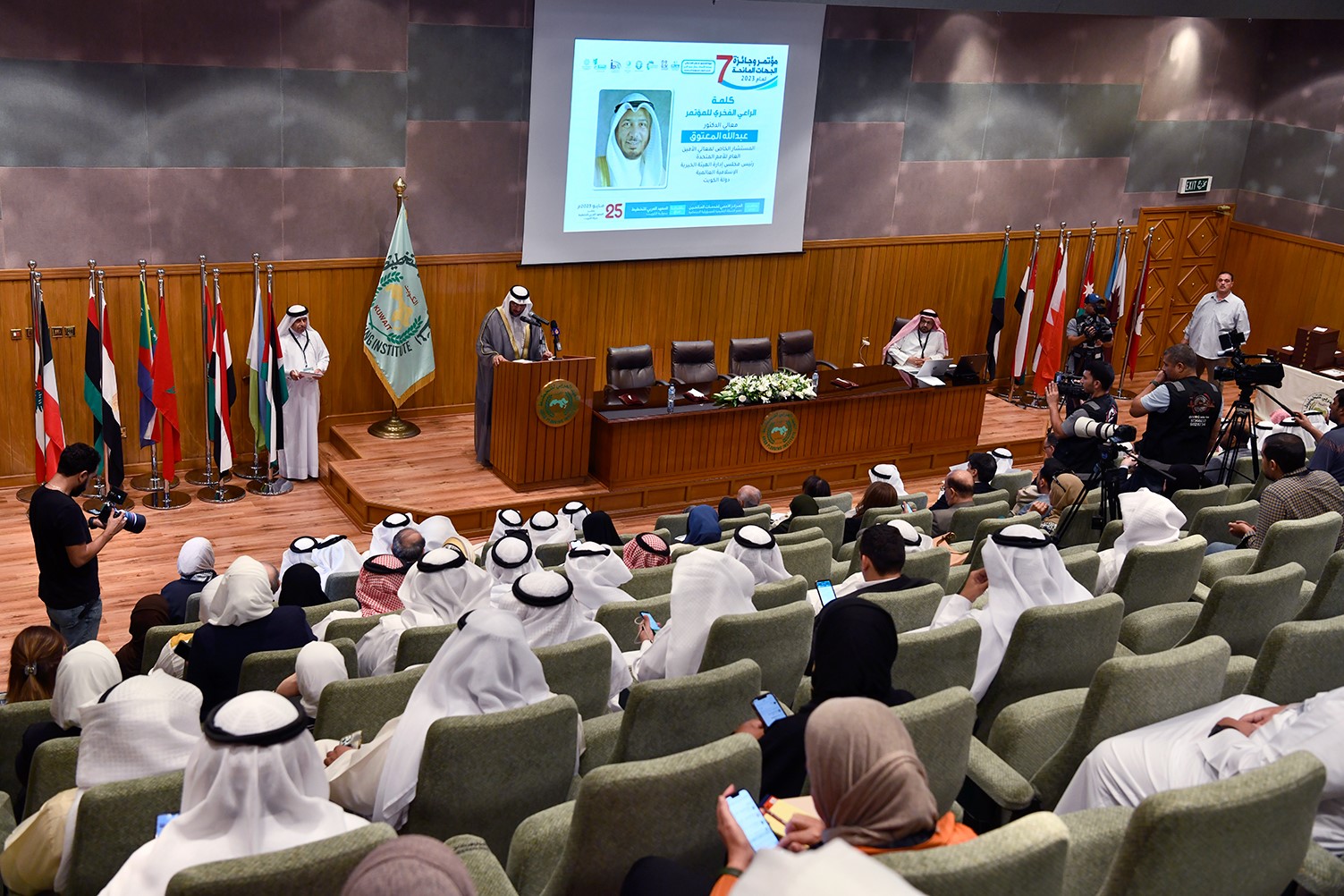KUWAIT — Gulf countries account for 97 percent of total Arab contributions to humanitarian and developmental aid given to other Arab countries, according to the Arab Planning Institute (API).
API’s Director General Dr. Bader Malallah disclosed this information at the 7th conference and award event for donating organizations, hosted by the Regional Network for Social Responsibility in collaboration with API.
The conference delved into the pressing issues facing charitable organizations and emphasized the significance of adopting institutional charity mechanisms to meet the needs of developing communities.
Special Adviser to the UN Secretary-General, Ahmad Al-Muraikhi, spoke about the numerous initiatives taken to meet the 2030 sustainable development goals.

He indicated that this year has seen a surge in relief requests, with the number of people in need reaching 339 million across 69 countries. This figure represents a rise of 65 million compared to the previous year, and the estimated cost of providing necessary aid is around US$51.5 billion, marking a 25 percent increase.
Nabeel Al-Oun, the Chief of the board of directors at Salam Charity, emphasized the necessity for a program aimed at devising strategy, enhancing efficiency, and optimizing resources. Al-Oun praised the role of the International Islamic Charity Organization in developing donation procedures.
The Chief of the Regional Network, Yousef Abdulghaffar, pinpointed the challenges facing charitable organizations, including conflicts and societal instability. He asserted that these organizations require improvement to keep up with escalating demands.
The conference discussed several topics relating to the development, capacity building, and facilitation of work for these charitable organizations.
Gulf countries emerge as the most generous donors
In recent years, Gulf countries have emerged as the most generous donors of humanitarian aid, significantly surpassing their Arab counterparts. The top four donors from the Gulf region, Saudi Arabia, UAE, Kuwait, and Qatar, together contributed $4.5 billion in humanitarian aid in 2020. This accounted for a notable 12 percent of all global humanitarian aid provided during that year.
Contrastingly, the leading four Arab donors, Egypt, Algeria, Morocco, and Tunisia, collectively offered a comparatively lower $1.5 billion in humanitarian aid during the same period, making up just 4 percent of all global humanitarian aid.
The disparity in contributions between the Gulf and Arab nations can be attributed to several factors. Primarily, the wealth level of Gulf countries significantly exceeds that of other Arab countries. In 2020, the per capita GDP of the top four Gulf nations stood at $75,000, dwarfing the $5,000 per capita GDP of the leading four Arab nations.
In addition to economic capacity, a longstanding tradition of extending humanitarian assistance also factors into the Gulf nations’ larger contributions. For instance, Saudi Arabia has been consistently providing aid to Yemen since the outbreak of the civil war in 2015. Likewise, the UAE has emerged as a major benefactor for not only Yemen but also other nations in the region, including Syria and Iraq.
While the Gulf nations have been more generous with their humanitarian aid, recent years have seen an encouraging trend towards cooperation between Gulf and Arab countries in this domain. In 2018, the GCC initiated the Gulf Humanitarian Alliance, a coalition aiming to unify the humanitarian efforts of Gulf countries. This alliance has already made significant contributions to countries such as Yemen, Syria, and Iraq.
This burgeoning collaboration between the Gulf and Arab countries in humanitarian aid is a positive development that looks set to continue. It promises to enhance the efficacy of aid distribution, ensuring that a larger number of people in need receive the necessary support.







